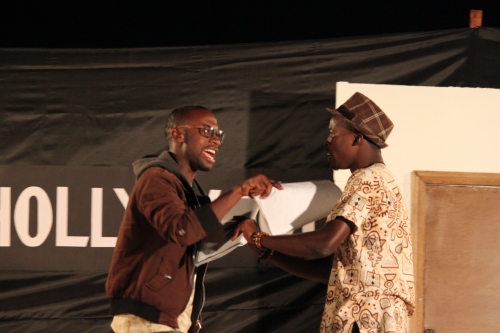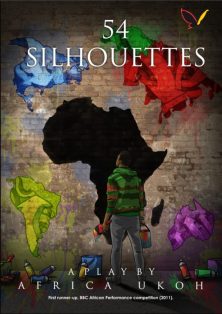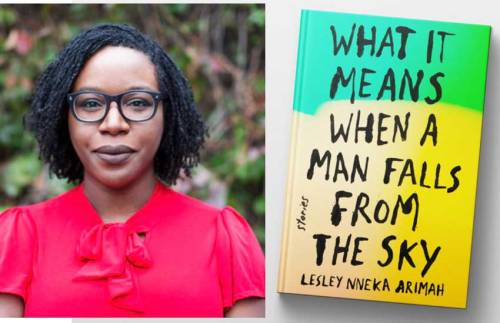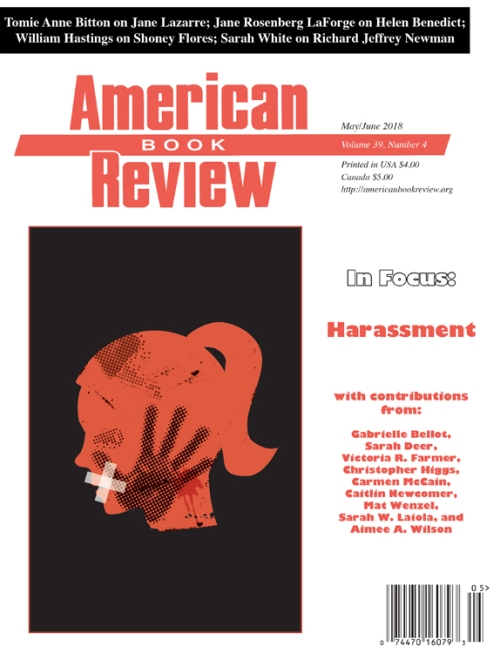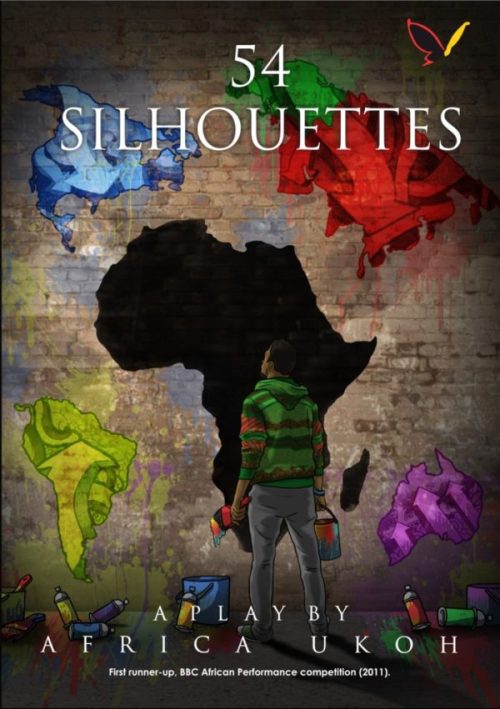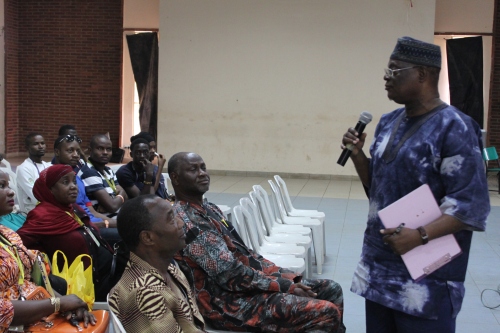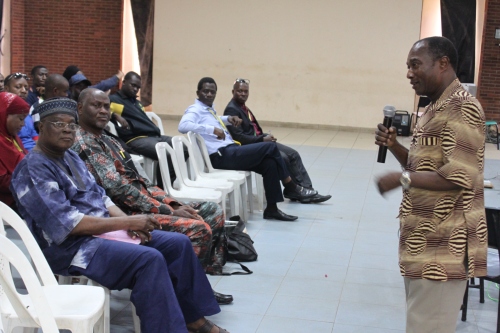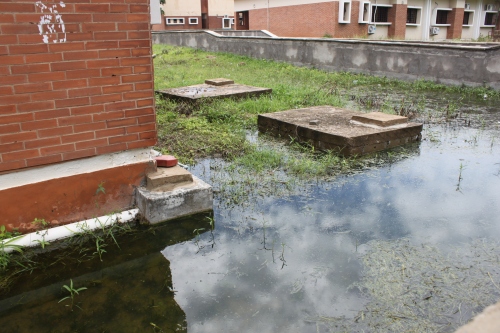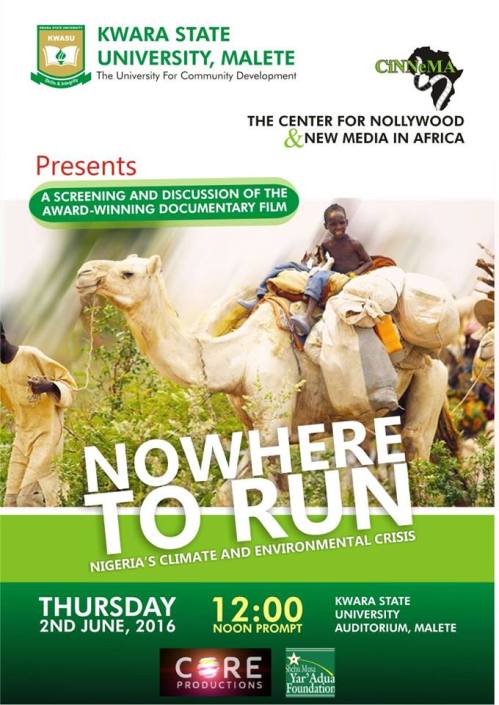Dear Republican loved one living in a “Red” State (from your non-Republican loved one living in a “Blue” state),
Thank you for listening, two days ago, to me talk about my concerns about the Man in the White House. Thank you for listening, and thank you for asking me to send you a list of the things I am concerned about. I appreciate your openness to hearing my perspective.
There are some relatives I know voted for Donald Trump. I do not know if you did. I do not ask. What I do ask, however, of all my loved ones no matter how they voted is to please call your representatives and register your concerns with the ongoing executive overreach.
I realize that some people may have “held their noses” and voted along party lines or over concerns about abortion or high healthcare costs. I know those same people have serious concerns about his personal character and leadership ability. On the other hand, to those people who continue to defend the Man in the White House or to even celebrate him, please consider reading the links to the articles I provide below and giving some thought to our concerns.
I believe those of you who are Republicans and who live in states with Republican representatives have more power than those of us who live in states with Democratic representatives, since the Republicans currently have control of all three branches of government: the executive, legislative, and judiciary. Unless Republican lawmakers and those who voted for them stand up against abuse from the executive branch, I seriously fear for the future of this country.
Since the day of the inauguration, things have been moving so fast that it has been hard to keep up with everything that is going on (it’s similar to the days of the campaign, where Trump would blitz us with multiple things at one time so that when we focused on some new sensationalistic outrage, we missed the quieter but more dangerous discussions going on). However, this New York Times interactive site shows what Trump has done and what he still has to do on his agenda. PBS has a similar page from a few days ago that looks at 10 executive orders Trump signed with only one week in office.
Here is a partial (but not complete because I don’t have enough time to do that) list of some of my most pressing concerns.
Because I am alarmed at the amount of disinformation, fake news, and “alternative facts” floating around, I have decided to support institutions that are well known for investigative journalism and fact checking; therefore, I have subscribed to digital access for The New York Times, The Washington Post, and The Wall Street Journal. I have also donated to The Guardian, and have other magazine subscriptions, including Time, The Atlantic, The New Yorker, as well as The Sun and Essence. (And no, I don’t have time to read them all but the digital access to news is invaluable) If you find that you cannot access some of these articles because you aren’t a subscriber, please let me know and I can send you a pdf of the article. If you do not read news from these organizations because you think they are “biased,” please take a look at this “news literacy toolkit” one of my smartest students sent me last semester on how to evaluate what you read.
Commitment to a free and fair media.
I am alarmed by Trump’s proclaimed “war with the media.” A free press has long been considered one of the pillars of democracy, alongside the executive, legislative, and judicial branches—an essential check and balance to hold the government accountable. However, Trump’s “war against the media” has involved refusing to take questions from media outlets during press conferences, talk of moving the presscorps out of the White House, and restricting government agencies from speaking to the press or even publishing information on their websites. His “gag order” on Federal agencies does not allow them to engage in any external communications until Trump has completed putting political appointees into place. While some analysts think this is merely temporary and not a big deal, it seems that he has targeted agencies, like the EPA, which are involved “environmental protection and scientific research.”. You can read more about this at The New York Times and PBS.
He has also been involved in propaganda efforts, such as demanding the acting director of the National Park Service to produce additional photographs of crowds on the Mall during inauguration and bringing a crowd to applaud him at his address at the CIA headquarters.; His advisor Steve Bannon reinforces this “war” with the media, and 6 journalists were charged with felonies while covering the inauguration protests on the day of the inauguration.
John Fea, a historian who teaches at Messiah College, points to the multiple untruths told by Trump, including the infamous appeal to “alternative facts” and his team since the inauguration and asks where the Christians who will stand up for truth are.
Ban on Refugees AND legal immigrants with visas/greencards
My most immediate concern is Trump’s executive order banning refugees entry from Iraq, Syria, Iran, Sudan, Libya, Somalia, or Yemen (full text here following on an earlier draft, which proposed to “indefinitely block Syrian refugees from entering the United States and bar all refugees from the rest of the world for at least 120 days.” ). The ban also includes green card holders—that is permanent residents of the United States—and dual citizens of other countries—for example a British-Iranian or a Dutch-Somalian. If they are currently travelling, whether on business to go to a funeral etc, they will not be allowed to enter. Here are some of the stories of those travellers who were affected when the executive order was signed. (UPDATE, 29 January 2016: This story of a Somali woman travelling with her two children [American citizens] to join her husband in the U.S. is particularly upsetting. She was continuously browbeaten to try to get her to sign documents invalidating her visa, told she would be sent back to “Africa,” she was handcuffed, and she and her children were not fed during their 20 hour ordeal.)
These stories, as told by the New York Times, include the family of Fuad Shareef of Iraq, who worked as an interpreter and translator for the U.S. armed forces in Iraq, a job for which he had received death threats. He and his family were given clearance to move to the U.S. and they sold their home and car and gave up jobs to move to America, but were not allowed to board their flight in Cairo and are stuck there. Nisrin Omer a Sudanese woman who is a PhD student at Stanford and a greencard holder was handcuffed, aggressively patted down and interrogated for hours after returning from a research trip in Sudan. Similarly Ali Abdi, a PhD student at Yale who has a green card is stuck outside of the country; an Iranian scholar who had a fellowship to study at Harvard is now unable to come. The stories also include a Yazidi refugee from Iraq who was about to join her husband; Christian Syrian relatives of U.S. citizens who have already landed in Philadelphia,; a dual British-Iranian citizen unable to get home to Scotland from Costa Rica because her flight connected through the U.S.; etc. etc, etc. This NYT article follows up some of these stories and describes the fear and unrest all over the world caused by this ban. Although immigration policy analysts say the ban is illegal and the ACLU was able to obtain a stay of action from a federal judge in Brooklyn so that travellers would not be deported, they may still be detained. Furthermore, this is only temporary, and White House senior advisor Stephen Miller has said, “Nothing in the Brooklyn judge’s order in anyway impedes or prevents the implementation of the president’s executive order which remains in full, complete and total effect.” (UPDATE 29 January 2016: The American Immigration Lawyers Association report that “border agents were checking the social media accounts of those detained and were interrogating them about their political beliefs before allowing them into the U.S.”Note that these were people with legal visas.)
This has already caused a massive international relations problem. Iran, which had recently signed a nuclear non-proliferation deal with the U.S., has called it “an obvious insult to the Islamic world.” Deutche Welle covers more global responses to the ban.
Donald Trump’s executive order on immigration also states that it will publish the “criminal acts committed by aliens.” For analysis on why this is problematic, see these articles, on Simcha Fisher and the Daily Kos, which point to similar actions taken against Jews in Nazi Germany. The constant association of immigrants with criminality serves to dehumanize them and desensitize people to abuses against them.
A few Republican lawmakers, are joining Democratic lawmakers, to question the ban, but there should be more. [Update 29 January 2016 – Time Magazine now reports on “more than a dozen GOP members of Congress” who have spoken out against the executive order] [Update 30 January 2016 In particular, John McCain “has called the new Trump ban on immigration from a set of Muslim-majority countries a recruiting boon for Islamic State radicals.”] Please call your representatives and register your protest.
American University history professor Richard Breitman has written about Anne Frank and her family were also denied entry into the U.S. and were eventually murdered in Nazi concentration camps. In a 2007 paper, he wrote “Otto Frank’s efforts to get his family to the United States ran afoul of restrictive American immigration policies designed to protect national security and guard against an influx of foreigners during time of war.” [UPDATE 29 January 2016 For Holocaust Memorial Day–the day Trump signed the executive order banning refugees–The Smithsonian has an article commemorating 254 Jewish refugees, passengers on the ship the St. Louis, murdered in the Holocaust after being turned back from the shores of Cuba and the United States and sent back to Europe.]
Many members of our family have visited the Anne Frank house in Amsterdam and also visited the house of Corrie Ten Boom, a Christian who protected many Jewish refugees from the Nazis. Consider this in relation to the Syrian crisis today. Can we not draw connections? What was the point of visiting those houses if we don’t learn from them? Will we be able to live with our consciences if we deny refuge to those running for their lives?
Here are several Christianity Today articles talking about the Christian responsibility to speak up for refugees, and those Christian organizations who already have: “How to Respond as a follower of Christ to Trump’s ban of refugees” and “Evangelical experts oppose Trump’s plan to ban Syrian Refugees.” [UPDATE 29 January 2016: a coalition of evangelical groups has written a letter opposing the privileging of Christian refugees over Muslim refugees. Those who signed it included the CEO of the Accord Network, the president of the Council for Christian Colleges and Universities, the President of Korean Churches for Community Development, the President the President of the National Association of Evangelicals, the President of National Hispanic Christian Leadership, an Ambassador for the Wesleyan Church, the President of World Relief, and the President of World Vision US. Catholic and Mormon leaders have also opposed the executive order. The New York Times also interviews Christian leaders who oppose Trump’s plan.]
The Wall
On 25 January, Trump signed an executive order on the immediate commencement of building a $20 billion border wall, which he concedes that “US taxpayers would have to initially fund” while simulateously defunding a myriad of far less expensive other programs including NPR and PBS, the Office of Community Oriented Policing Services, Violence Against Women grants, the Office of Energy Efficiency and Renewable Energy, the Office of Fossil Energy, etc but he cannot start building it until Congress approves. Please urge your representatives to oppose the wall. This article describes some of the problems Trump will face in trying to implement the wall, including the huge expense of the wall, the ire of citizens whose land will need to be seized to provide property for the wall and those who are concerned that patrolling border communities with “tens of thousands of heavily armed, poorly trained, unaccountable agents puts lives at risk. This will turn these communities into de facto military zones” Christian Ramirez, director of the Southern Border Communities Colaition immigrant advocacy group says (The Guardian). See also, the New York Times.
It is not just advocacy groups who are criticizing the wall, however. Republican congressman Will Hurd of Texas has also said that “Building a wall is the most expensive and least effective way to secure the border” NPR points out that Trump’s suggested “import tax” means that Americans, not Mexico, would pay for the wall.
And I haven’t even gotten into Trump’s worrisome appointments yet. Most recently, Trump has “restructured the National Security Council” and has given Steve Bannon, filmmaker and former publisher of sensationalist, conspiracy theorizing Brietbart News who has links to white supremacist organizations, a seat on the National Security Council.
Other issues of international concern
China is talking about a WAR with the U.S.
Fox News points out the damage Trump is doing to American democracy and its reputation in the world.
Foreign policy experts are so concerned by Trump’s decisions that the “entire senior management team” of the state department resigned. These are people who had worked under both Republican and Democratic presidents in the past. Additionally over 100 diplomats and state department officials have signed “a draft document formally protesting President Donald Trump’s immigration and refugee order.” [You can read the full text of the document here.]
(Update 29 January 2016: Conservative analyst Eliot Cohen, who worked as a counselor to Condoleeza Rice, has written):
Trump, in one spectacular week, has already shown himself one of the worst of our presidents, who has no regard for the truth (indeed a contempt for it), whose patriotism is a belligerent nationalism, whose prior public service lay in avoiding both the draft and taxes, who does not know the Constitution, does not read and therefore does not understand our history, and who, at his moment of greatest success, obsesses about approval ratings, how many people listened to him on the Mall, and enemies.
He will do much more damage before he departs the scene, to become a subject of horrified wonder in our grandchildren’s history books. To repair the damage he will have done Americans must give particular care to how they educate their children, not only in love of country but in fair-mindedness; not only in democratic processes but democratic values. Americans, in their own communities, can find common ground with those whom they have been accustomed to think of as political opponents. They can attempt to renew a political culture damaged by their decayed systems of civic education, and by the cynicism of their popular culture.
[…]
There was nothing unanticipated in this first disturbing week of the Trump administration. It will not get better. Americans should therefore steel themselves, and hold their representatives to account. Those in a position to take a stand should do so, and those who are not should lay the groundwork for a better day. There is nothing great about the America that Trump thinks he is going to make; but in the end, it is the greatness of America that will stop him.
The Environment
Trump approved pipelines to pass near Sioux lands, building on a long history of disrespect, genocide, forced migration, and land seizure from Native Americans. Indigenous people are not protesting for no reason. According to Reuters, as recently as January 23, 2017, an oil pipeline in Saskatchewan, Canada, leaked over 50,000 gallons onto indigenous lands. According to the New York Times, Trump owned stock in the company that is building the Dakota Access Pipeline. He claims he sold it, but he has provided no documentation to prove the sell–just as he has never released his tax returns. Trump also believes climate change is a hoax perpetrated by China and plans to reverse environmental legislation.
The Rachel Maddow show gives researched evidence of serious environmental concerns under Trump.
Conflicts of Interest
Related to my concerns about Trump’s many falsehoods are my concerns about his ethics in other areas of life (and I don’t even have time to get into his abuse of women here). He has never released his tax returns and he has not divested from his business as presidents are expected to do. For comparison Jimmy Carter had to sell his family farm so as to not have a conflict of interest. By contrast, Trump did not put his business in a blind trust—instead having his sons manage his business. Now, there are reports that the fees at the club Mar-a-lago have raised membership fees from 100,000 to 200,000, cashing in on Trump’s new position and attracting those who might wish to have some influence over Trump or the government. There’s a lot more of this. I don’t have time to post it all right now. (Update: This piece by a Fordham University law professor explains Trump’s violation of the emoluments clause) But my question is, where are all of our checks and balances I heard people talking about before the election when they were saying Trump couldn’t do everything he said he would do? Who is enforcing our laws? And why aren’t we holding the man in the White House and our lawmakers responsible?
Education appointment
According to the Washington Post and the Wall Street Journal, a Senate Ethics review found that Betsy DeVos, Trump’s nominee for Education Secretary, who has never worked at an educational institution and has no experience in public education or education standards and who seemed quite unprepared during the hearing, is involved in 102 companies that could cause a conflict of interest. She also believes there needs to be guns in schools. During the hearing, DeVos would not agree that there should be equal accountability for private or charter schools that receive federal funds: Here is more from The Washington Post and The Wall Street Journal.
Hundreds of Calvin College alumni (the college DeVos attended) sign a letter outlining the concerns they have about the appointment.
This is just a very preliminary list that covers only a fraction of the fears I have over this new government. The only encouraging things to me in the past week have been the massive women’s marches that took place all over America and all over the world. I went to the march in Santa Barbara where over 6000 people came out.
We did not have a street permit, but when the police saw how many of us there were, they opened the streets for us.
I am also encouraged by the people who have gone to airports in the last 24 hours to demand that people with valid visas be let into the country.
Now is my time to get over my anger at those who voted (based on what they saw as “morals”) for Trump and to appeal to you to stand up for your values with us. You can’t get your vote back, but you can stand up for what is right. We will not agree on every issue, but I think (and hope) that many of those who voted for Trump believe in kindness, goodness, hospitality, love for our neighbour. It is only when we can realize, as President Obama said, in the face of grief and anger, that “we are not as divided as we seem,” that we can stand up against the kind of reckless authoritarianism we are seeing manifest in the man currently in the White House and those around him.
Please. Call your representatives. Remind them of the ideals for which you voted: life, liberty, freedom and justice for all.


